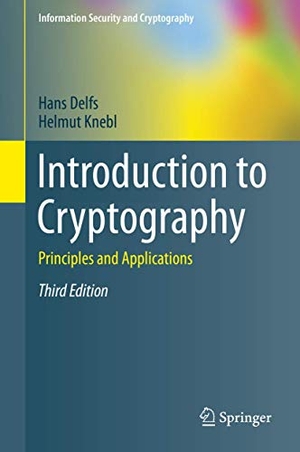Für statistische Zwecke und um bestmögliche Funktionalität zu bieten, speichert diese Website Cookies auf Ihrem Gerät. Das Speichern von Cookies kann in den Browser-Einstellungen deaktiviert werden. Wenn Sie die Website weiter nutzen, stimmen Sie der Verwendung von Cookies zu.
Cookie akzeptieren
- Springer Berlin Heidelberg
- 2015
- Gebunden
- 528 Seiten
- ISBN 9783662479735
The first part of this book covers the key concepts of cryptography on an undergraduate level, from encryption and digital signatures to cryptographic protocols. Essential techniques are demonstrated in protocols for key exchange, user identification, electronic elections and digital cash. In the second part, more advanced topics are addressed, such as the bit security of one-way functions and computationally perfect pseudorandom bit generators. The security of cryptographic schemes is a central topic. Typical examples of provably secure encryption and signature schemes and their security proofs are given. Though particular attention is given to the mathematical foundations, no special background in mathematics is presumed. The necessary algebra,
Mehr
Weniger
zzgl. Versand
in Kürze